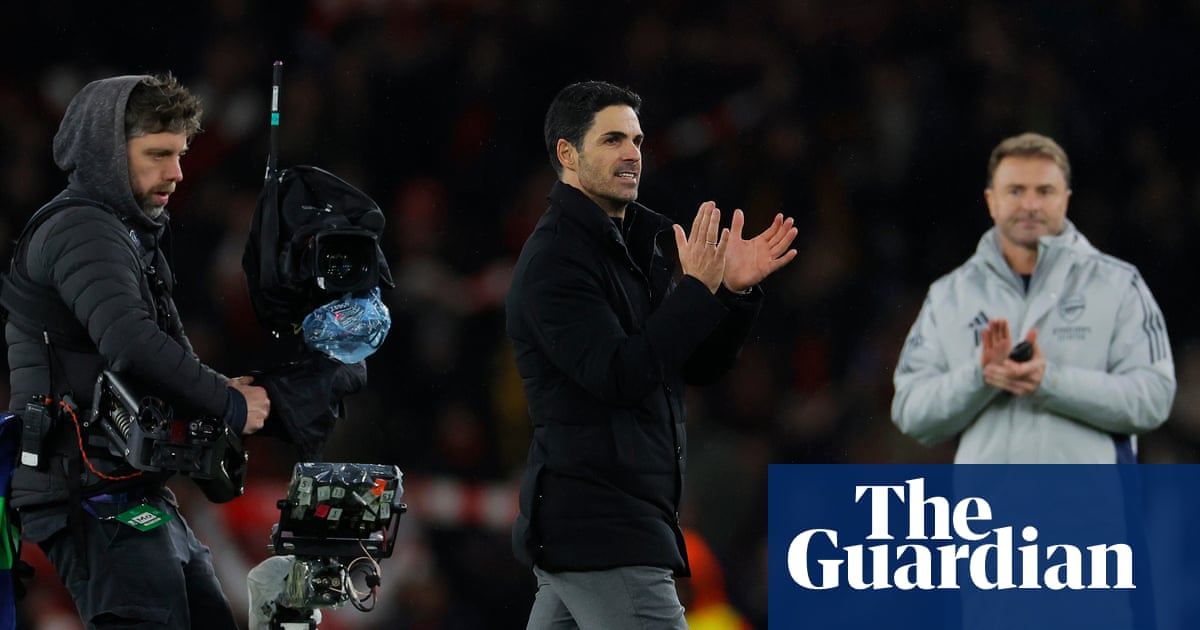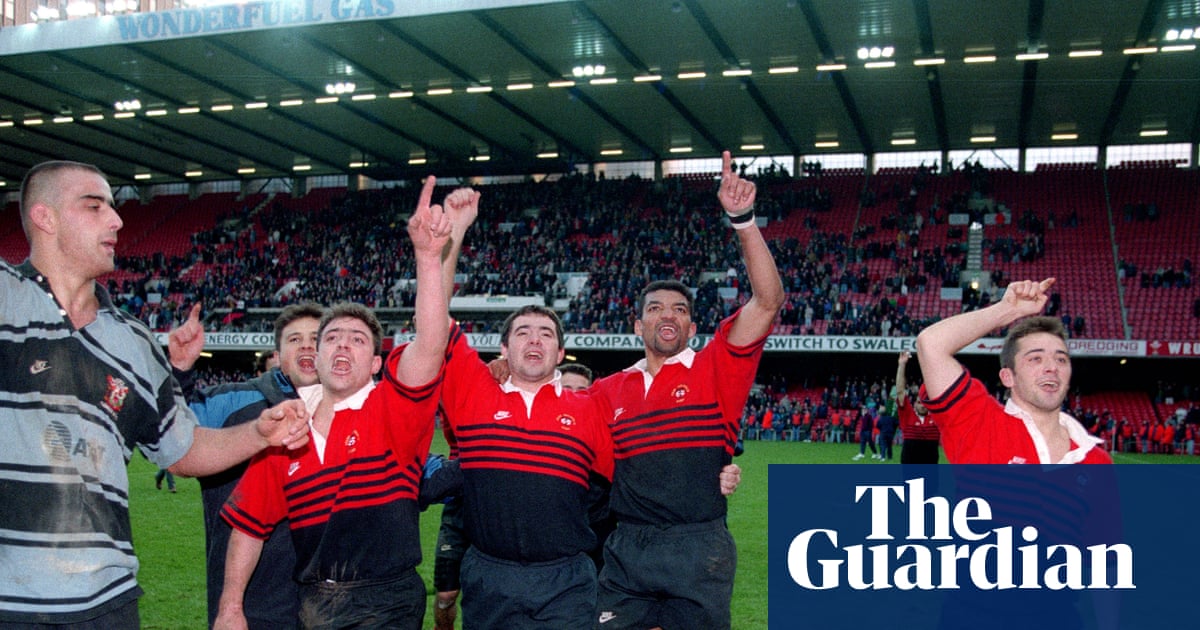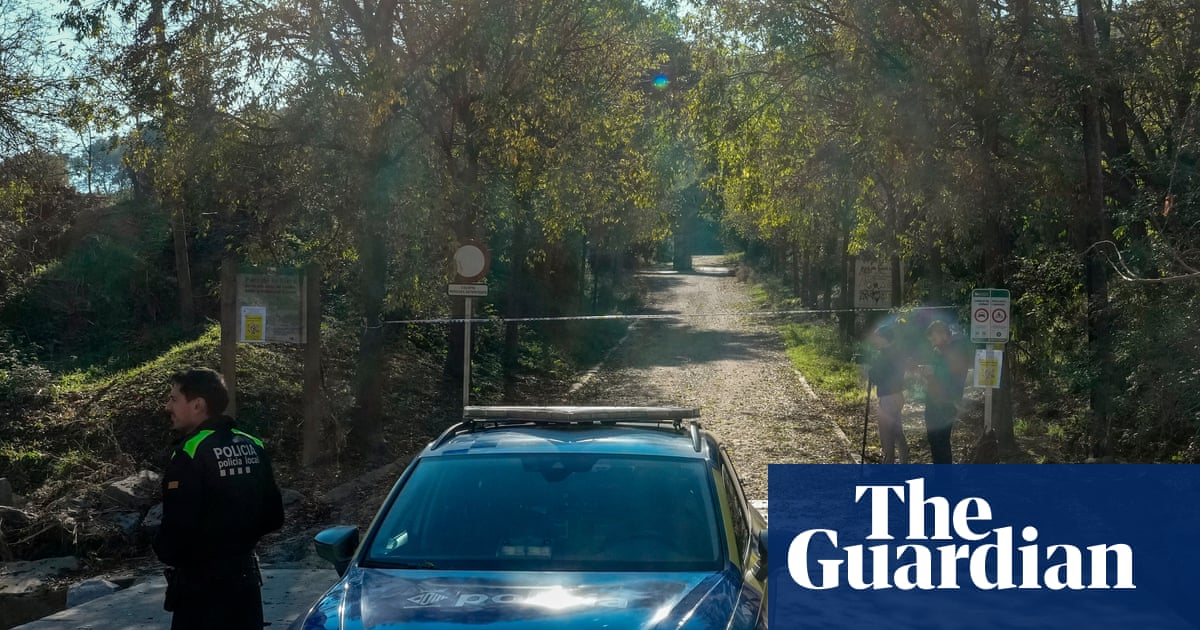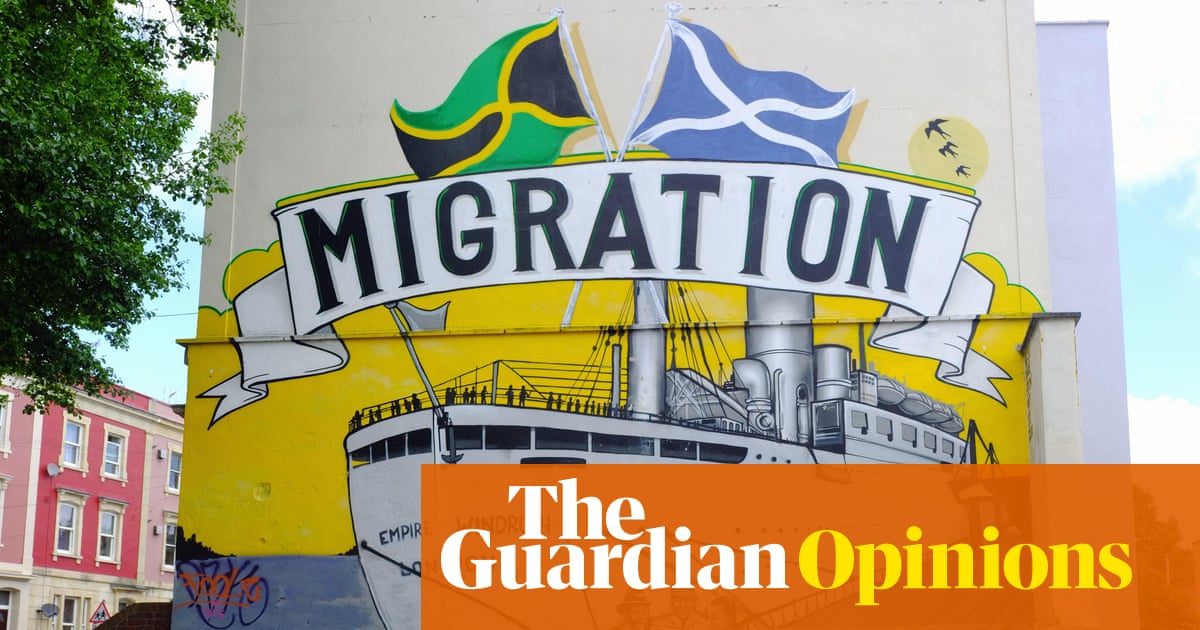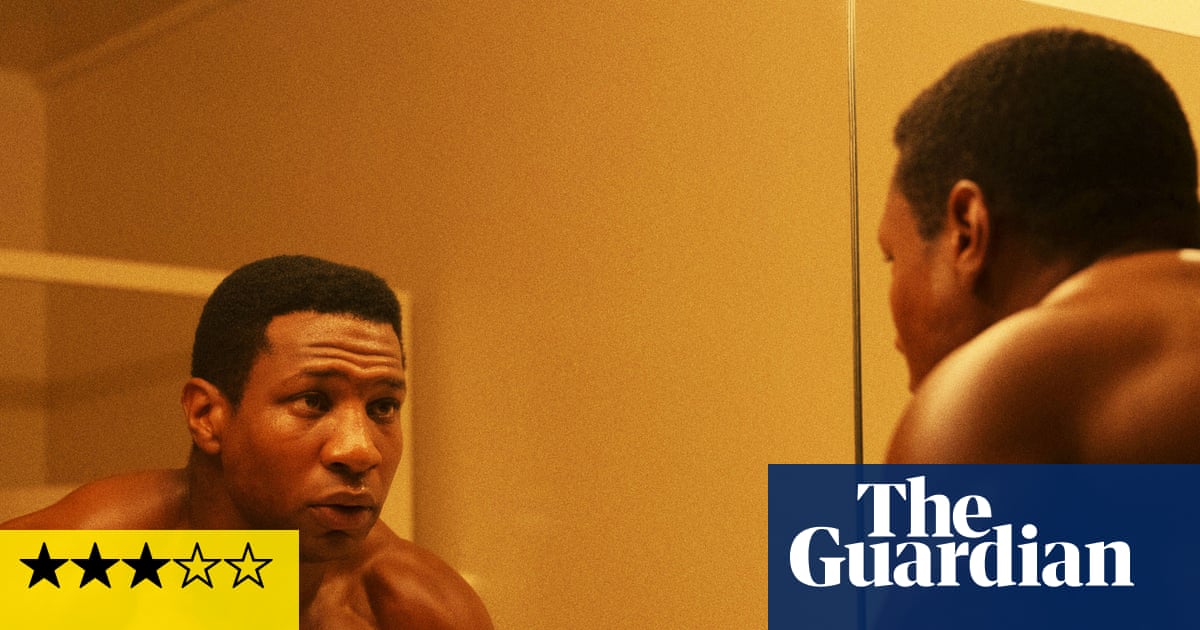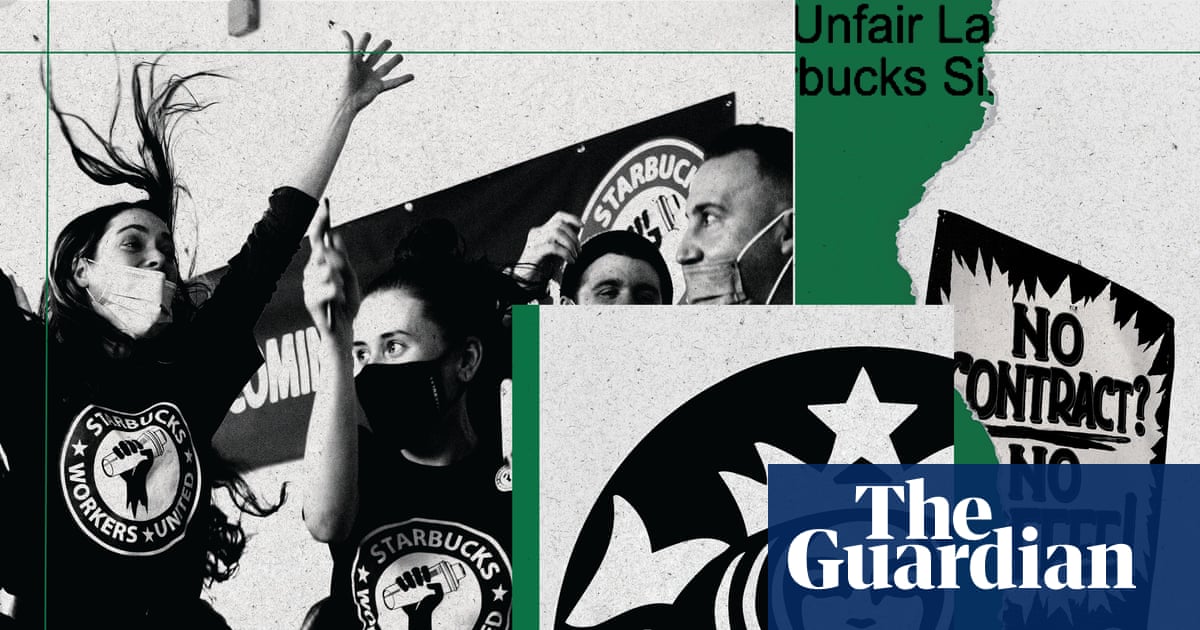Ask any music-loving Londoner to name the city’s best venues, and there’s a decent chance Corsica Studios will appear somewhere near the top of their list. Opened in 2002 by Adrian Jones and Amanda Moss, for 23 years this unassuming railway arch beneath Elephant & Castle station, with its pummelling sound, no-frills aesthetics and adventurous musical programming, has become one of the capital’s most influential and beloved clubs.
Founded and envisaged as a multi-purpose creative space rather than just a nightclub, it’s attracted massive names such as Jeff Mills and Björk, nurtured underground scenes from acid techno to jungle and pushed the boundaries of what a clubnight can be, via Evian Christ’s maximalist Trance Parties, Hyperdub’s groundbreaking Ø series or more recent forays into sex-positive raving.
But on Tuesday, Jones and his team confirmed rumours that Corsica will be closing its doors in March 2026. “Nothing lasts for ever” reads the official statement, in a depressing reflection of the pressures facing independent venues. Figures published late last year show that the UK has lost half of its nightclubs since 2013. But this is also a more nuanced and less hopeless situation than the initial hot takes have assumed.
“It’s really frustrating because the news has been taken in certain directions already, like it’s the developer’s fault, it’s a noise complaint, it’s about money,” says Jones. “There’s an element of all those things,” he admits, but none of them fully explain why Corsica is closing.

As part of the £1.5bn redevelopment of Elephant and Castle, undertaken jointly by Southwark council and property developers Delancey, flats are now being built on the site of the former Elephant shopping centre. At various points in the design and planning process, the presence of a nightclub right next door appears to have been critically – perhaps unforgivably – overlooked. As a result, when the first residents move into their new homes next year, several will find themselves no more than five metres from Corsica’s outdoor smoking area.
Negotiations with Southwark and Delancey have been ongoing since 2017 (Jones gives specific credit to London’s much-maligned former night tsar Amy Lamé for kickstarting the conversation) but have failed to broker a compromise that would enable Corsica to continue operating. “You can stay as long as you want,” Jones recalls being told by Delancey. “You just can’t make any noise past 1 April.”
Instead, thanks to Section 106 powers, often used to mitigate the impacts of a development proposal, and Agent of Change principles, in which the developer is responsible for managing those impacts, the space will be vacated next March, soundproofed at Delancey’s expense, then handed back as an empty shell in 2027 to be refitted for use as a cultural and creative venue once again. Jones and the current Corsica team have first refusal on the space, but whether or not they take that offer up – or the details around what any future venue might look, sound and feel like – remain undecided.
The end of Corsica as we know it is clearly a tragic and avoidable loss. But the assurances that music will return to the arches in some form, for which Jones, his team, and other parties like the Greater London Authority have all fought hard for, mean that this isn’t a straightforwardly unhappy ending.
“With the best will in the world, I’ve been doing this for 24 years in Elephant, and before that in north London getting regenerated every six months, and it’s not great for your mental health,” Jones says. It’s clear that the last few years have taken a toll, whether in relation to the redevelopment plans, the lingering effects of the pandemic on London’s nightlife, or the loss of Amanda Moss, Jones’s partner and Corsica’s co-founder, who died of a rare form of ovarian cancer in 2017. “So there’s an opportunity to go: mission accomplished. We can leave knowing that we’ve made a mark, and left the framework for a space in the future. And truly, I think that’s a massive achievement, because you don’t often get a success story like that.”
London’s promoters, performers and partiers will be hoping that any future venue recaptures the creative energy and DIY ethos of its predecessor. “Everything they did, they did themselves. They were unafraid of having a go at something, even if they didn’t know whether it would be successful,” says the DJ and author Bill Brewster, who has been throwing Low Life parties at Corsica since it first opened. “My kids weren’t born when we started,” he says, “but I can remember when they’d help me decorate the venue at eight or nine years old, and now my daughter’s a DJ at university. That’s a huge chunk of my life.”
Hyperdub label boss Kode9 has worked with Corsica since 2009, booking DJ sets from the likes of Björk and Laurel Halo alongside AV installations by Mark Leckey and others. “I don’t know any other venues with two rooms which had great sound and which would facilitate things for us without being overly complicated,” he says. “Corsica did so much above and beyond the call of duty: everyone getting up on ladders, fitting screens in weird places. It’s a very unique place, with a unique culture.”
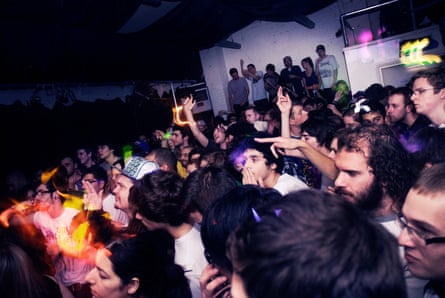
When asked to name his favourite moments at Corsica, Jones cites a six-hour set by Detroit techno DJ Jeff Mills in 2012 – so good that even the normally taciturn Mills declared it the best night of his entire life – and a secret set from US drone metal band Sunn O))) which was “so loud people were hallucinating, having their DNA rearranged just from the vibrations”. But he also namechecks a local youth group called Kickstart, which used Corsica back in the days when Jones saw the venue as a multi-use community space rather than just a club.
That willingness to look beyond the traditional boundaries of club culture is reflected in one of Corsica’s newest regular events, MJ Fox and Lydia Fikan’s queer kink party Joyride. “We wouldn’t have started without Corsica’s backing,” says Fox, noting the catalysing effect of that endorsement on the wider sex-positive rave scene. “They’re just very authentic, and very genuine: they want to throw great parties, and bring great people together.” In a nightlife scene increasingly dictated by private equity investment, Corsica has shown that simple, radical values and straightforward funding based on ticket sales can sustain a community space for decades.
It would be easy to rage against Delancey and Southwark for allowing something this precious to be lost. “Naturally, when someone comes along and threatens your livelihood and your business, it does put you on the back foot a little bit,” Jones says. “And certainly when we felt like we weren’t getting answers, or things weren’t going our way, it did become more confrontational and combative. I’m sure they’d say the same.”
But Jones also credits the council and developers for coming to the table, and working tirelessly to find a resolution that may end up extending Corsica’s story beyond the six months of farewell parties already planned.
“I’m very protective of Corsica, of course I am. I don’t want to lose it, and I don’t want anyone to be disappointed in me for not preserving it,” Jones says. “But at the same time, I want whatever’s going to give it the best opportunity for survival. This is something that Amanda and I built with our friends through love and sacrifice. We created our own little world, and it’s sad to see it go, but sometimes things have to move on.”

 2 months ago
64
2 months ago
64






